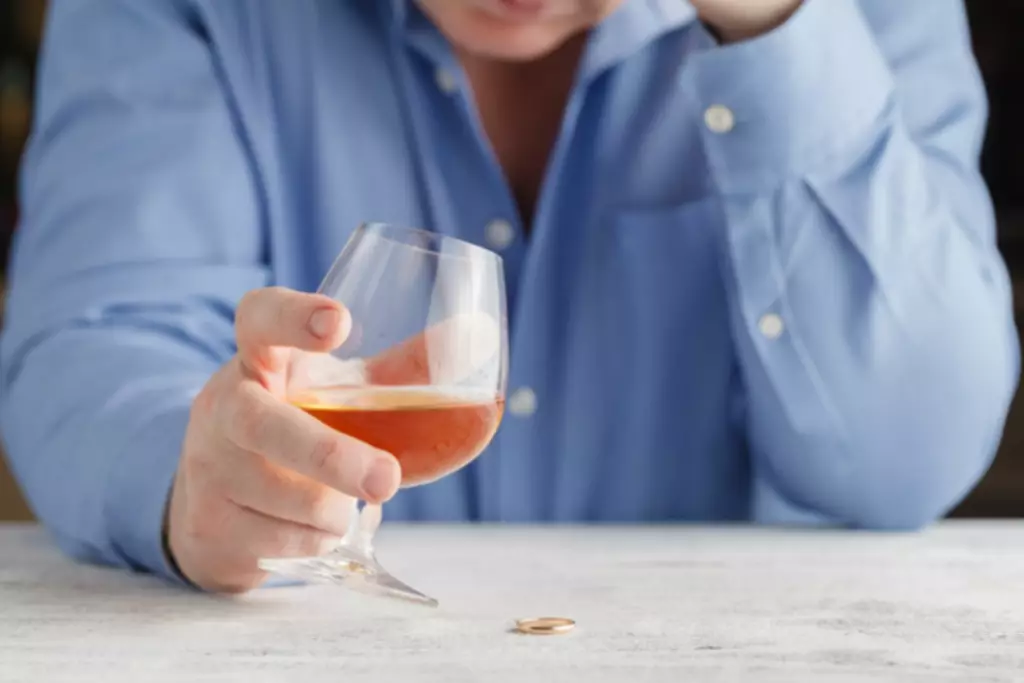Content
We use a pharmacist-formulated blend of Quercetin, Bromelain, Dihydromyricetin, Cysteine, L-Theanine, & B Vitamins to stop alcohol flushing before it can begin. Unfortunately for wine-lovers, there’s a lot of things in wine that can cause negative reactions or intolerances. Often it’s facial swelling of the lips https://ecosoberhouse.com/article/5-stages-of-alcoholism/ and tongue, says Dr. Glatter. The medication is injected to quickly relax muscles to open up airways. The doctor may refer the person to an allergy specialist for further testing and treatment. Anaphylaxis is a life threatening condition that involves a series of symptoms, such as a rash, low pulse, and shock.
- Hodgkin lymphoma is a blood cancer that can affect a person’s lymphatic system.
- During a skin prick test, your doctor will use a lancet to prick or scratch your skin.
- You may be more likely to have reactions to alcohol if you have any of these factors.
- Alcohol intolerances can be caused by a reaction to histamines, grains or other ingredients, and sulfites or other chemical preservatives.
- It just means that your brain is powerful, and can tamp down symptoms just by believing it can.
Most likely, the reason for this is that alcohol dilates blood vessels in the nose. The following are drinks that are more likely to make you sneeze than others. Sneezing can be caused by drinking alcoholic beverages, particularly spirits. This is caused by the irritation of your nose and throat with alcohol. If you suffer from a genuine alcohol allergy, avoid it altogether. Having asthma or allergic rhinitis can also put someone at risk for alcohol intolerance.
Red, Itchy Skin
Similarly, he said he’s treated people who were actually sensitive to barley, hops, or malt rather than beer, or to fruits mixed into cocktails rather than the alcohol itself. People with an alcohol allergy experience a reaction after as little as 1 milliliter of pure alcohol or a mouthful of wine or beer (about 10 milliliters). Why some people experience allergic reactions to alcohol – when small amounts are already produced by the body naturally – is yet unknown to researchers. However, in some cases, severe reactions to alcohol are mistaken for allergies when the culprit is Hodgkin’s Lymphoma, a cancer of the lymph nodes.
- It’s worth noting that just because the placebo effect works doesn’t mean that allergies are all in your head.
- Simply avoid alcohol, limit how much you drink or avoid certain types of alcoholic beverages.
- This dilation occurs first in the brain, so you may feel flushed or warm after only a few sips of alcohol.
Instead of using pre-made cocktail mixes, try combining fruit juices in your cocktails to prevent sneezing after drinking. Have you ever seen someone in a bad sneezing fit after consuming alcohol? Some people believe that the issue is more about the type of beer (too much hops) than the reaction to alcohol in beer. A beer sneeze indicates that someone is about to pass out after drinking too much alcohol. If you do choose to drink, limit how much you drink and stop drinking at the first sign of symptoms.
Low blood pressure
It is worth noting, however, that each person experiences alcohol intolerance differently. The duration in which symptoms are felt can depend on a number of factors, including the amount of alcohol consumed and the severity of one’s intolerance to the substance. In a way, however, East Asian populations may still have some benefit from being more likely to have this enzyme deficiency. Because of this condition, alcohol-related cancers are less common in the group. This is due to the unpleasant sensations after drinking alcohol that make them drink very little or none at all.
Why do I sneeze when I drink whiskey?
When you drink alcohol, it's absorbed into your bloodstream and quickly travels to your brain. One is that alcohol dilates blood vessels in the nose, which can cause irritation and lead to sneezing.
In one 2005 Swedish study, those with asthma, bronchitis and hay fever were more apt to sneeze, get a runny nose or have „lower-airway symptoms” after a drink, especially women. Histamine is produced by yeast and bacteria during fermentation. In addition to histamine, sulfites can be found in wine and beer, which may also irritate allergies for some people.
Alcohol intolerance
It’s more common in the Asian population simply because of genetics—families pass down the flawed enzyme, and it happens to have been propagated a lot in Asian communities. Wheat, barley, and rye are three grains used to make beer and other alcoholic beverages. These grains can also trigger symptoms among those who have celiac disease, which is an autoimmune disease that causes inflammation in the small intestine. As little as one-eighth of a ml of pure alcohol can cause serious bodily harm.
However, for a severe skin reaction, weak pulse, vomiting or trouble breathing, seek emergency help right away, as you could be having an anaphylactic reaction. Although alcohol intolerance usually isn’t a serious issue as long as you don’t drink alcohol, you might want to discuss it with your doctor at your next appointment. Here’s some information to help you get ready for your appointment. Asians, particularly those of Chinese, Japanese or Korean descent, can experience a „flush syndrome” when drinking alcohol because of troubles with digestion, according to Bassett. A protein on the skin of a grape, mostly those in red wines, can contribute to symptoms in those who already have allergies, according to a German study. If you find that certain foods make you sneeze, such as strawberries or shellfish, try avoiding them before you drink.
Alcohol Allergies and Alcohol Intolerance
In rare cases, pain after drinking alcohol might be a sign that you have Hodgkin’s lymphoma. The main treatment of both conditions is avoiding alcohol or the ingredients that trigger the allergy. For allergic reactions, taking an antihistamine like Benadryl for a mild to moderate reaction can help.

Some alcohols, including red wine, contain high levels of histamine. However, some people do not have an enzyme called diamine oxidase, which is supposed to break down histamine. This results in symptoms such as red eyes, https://ecosoberhouse.com/article/the-causes-of-sneezing-when-drinking-alcohol/ runny nose, facial swelling, and nasal congestion after drinking alcohol. Dilated blood vessels can cause inflammation and swelling in the nasal passages. This can lead to sneezing as well as a runny or stuffy nose.
Having a runny or stuffy nose after a drink may easily be mistaken for alcohol allergy symptoms, but it is actually a sign of alcohol intolerance. The chemicals present in alcoholic beverages may contribute to nasal congestion or a runny nose. An alcohol allergy is a toxic reaction to alcohol, or ethanol more specifically. Allergies to alcohol are fairly uncommon but can be fatally serious.
